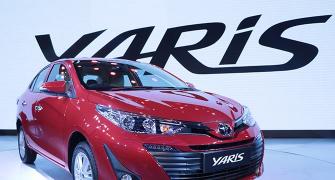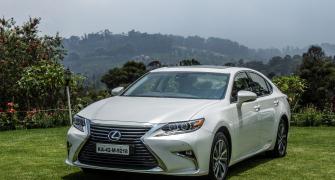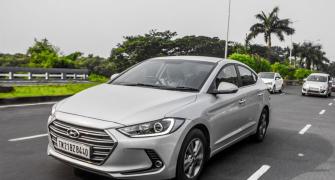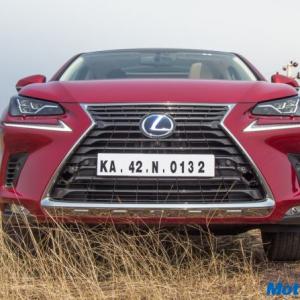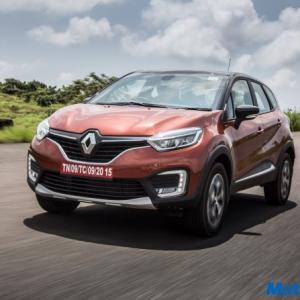The government has mandated that from October 2017, all new car models will have to be equipped with airbags to meet crash test norms.
Existing models need to meet these norms from October 2019.
Dual airbags in a car roughly costs Rs 15,000.

Carmakers' usage of airbags has jumped up to three times in last three years, thanks to the rising trend of offering multiple airbags in several new models.
Most of these airbags now get sourced locally as manufacturing has picked up in last couple of years.
Almost every new car that has been launched in the last couple of years has at least one airbag (driver side) while some also have passenger airbags.
The government has mandated that from October 2017, all new car models will have to be equipped with airbags to meet crash test norms.
Existing models need to meet these norms from October 2019. Dual airbags in a car roughly costs Rs 15,000.
Maruti Suzuki, the country’s biggest carmaker has seen almost a three-fold jump in consumption of airbags during the three years ended March 2018.
The company did not share the total units consumed last year.
"We have suppliers like Autoliv, Toyoda Gosai and Ashimori who have already set up local manufacturing capacities as per our future requirements. The current localisation level is around 60 per cent. Only components like inflator and fabric are imported," said a company spokesperson.
Toyota, the first company to make airbag a standard fitment across models in India, has seen demand double in last two years to 615,000 units.
Except for the knee airbags, the Japanese carmaker sources all the airbags locally.
The company said airbag prices are considerably stable and it expects to achieve further price competitiveness over next 3-5 years with enhanced localisation process across the supply chain.
"At Toyota, the airbag utilisation has grown with its standardisation across models and variants. In 2015, we were the first in the industry to standardise dual airbags across all models.
"In 2016, with the new Innova Crysta, frontal knee airbags were standardised across its variants.
"The new Fortuner launched the same year, marked standardisation of 7 airbags across variants. In the recently launched Yaris, we have standardised 7 airbags across variants, a first in the segment,” said N Raja, deputy managing director at Toyota Kirloskar Motor.
Honda Cars India said it consumed 355,000 units of airbags in FY18 against 260,000 units in FY15.
The company said sourcing is not a challenge with rising consumption as sufficient number of suppliers is now operational in the country.
Dual airbags became a standard offering across the Honda car line up since April 2017.
With rising awareness, consumers are opting to buy vehicles that have multiple airbags.
Raja said customer preferences have been evolving, and his company witnesses a greater demand for products with advanced safety features at an affordable price.
Korean car maker Hyundai said the sales contribution of airbag fitted cars in total sales volume stood at 90 per cent in FY18, more than double compared to 40 per cent in FY15.
“Our suppliers are geared up for the rise demand and localisation level of airbag is quite high,” said a company spokesperson.
According to Minda Industries, which has partnered with Japan’s Toyoda Gosei for local manufacturing of safety equipment, a total of about three million airbags were supplied to various carmakers last year.
“We supplied 756,000 airbags last year and got revenue of Rs 350 crore. Prices have remained consistent since key components are imported.
"However, when the key component suppliers set up shops in India in times to come the prices may come down by 5-7 per cent,” said NK Minda, chairman and managing director.
Even as airbags are becoming a common feature in cars, manufacturers claim the first point of safety in a vehicle is the usage of seatbelt by all the occupants.
“That will reduce the injury predominantly. Airbags can only improve it by ten per cent. If you don’t wear a seat belt and the vehicle has an airbag, the consequences are going to be more fatal,” said an industry executive.
Photograph: Kim Kyung-Hoon/Reuters


